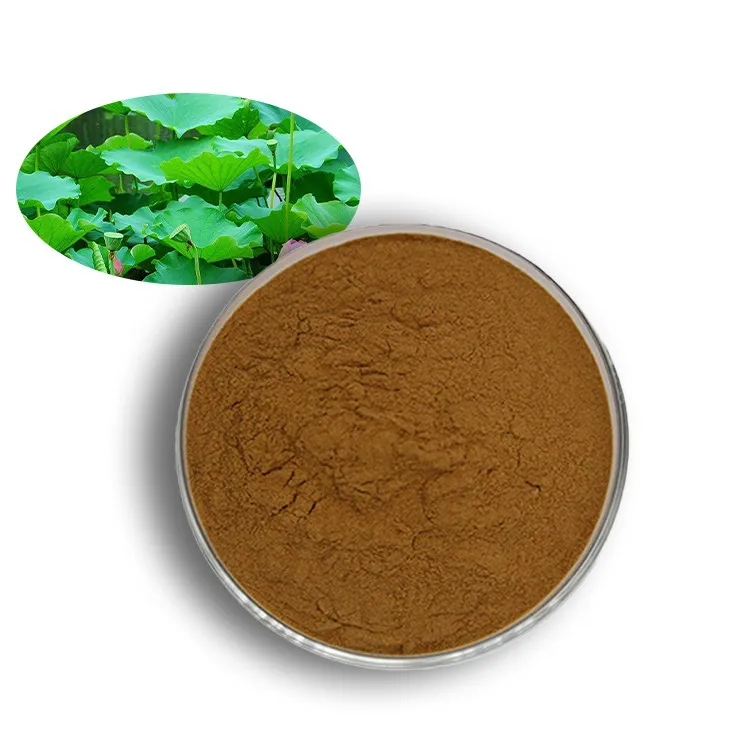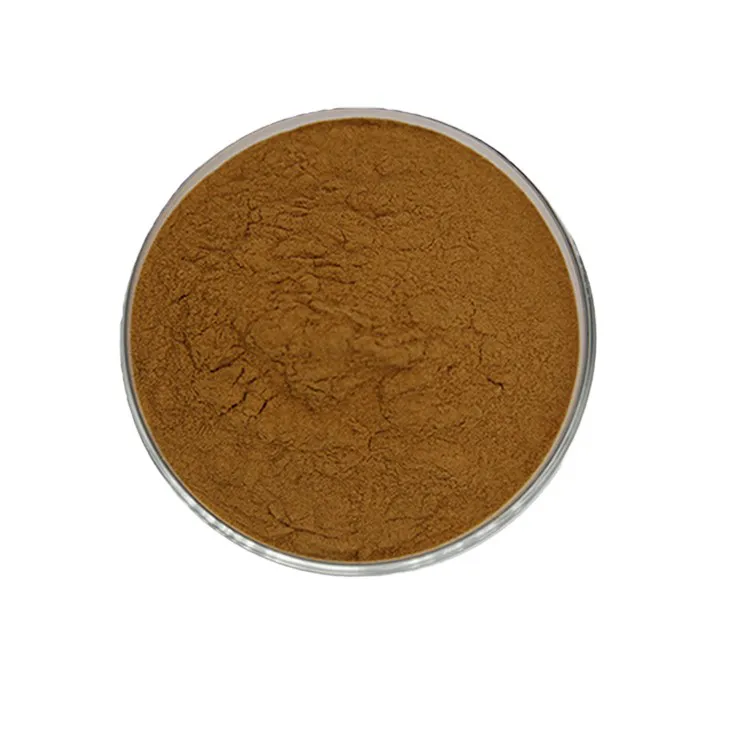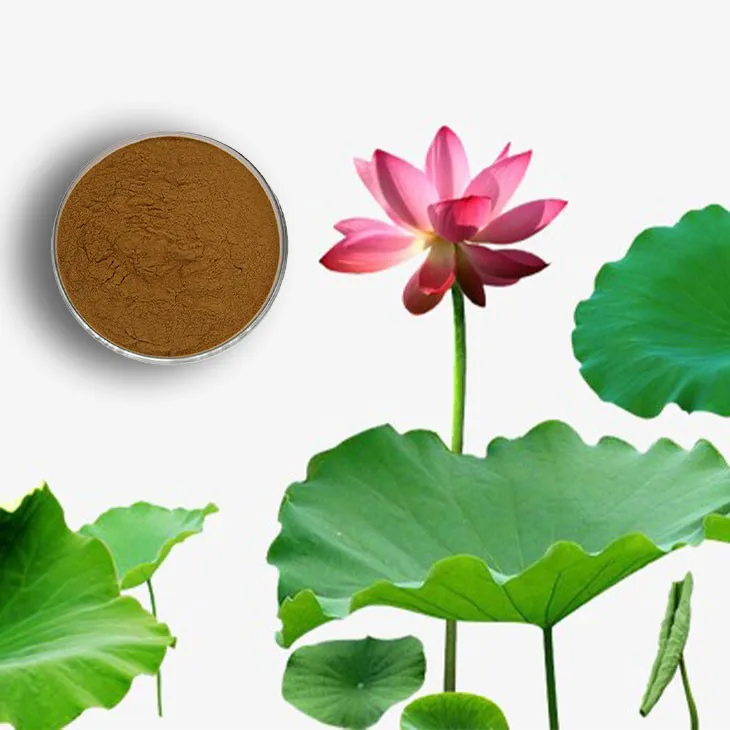- 0086-571-85302990
- sales@greenskybio.com
10 Amazing Health Benefits of Lotus Leaf Extract.
2024-11-13

1. Blood Sugar Regulation
Lotus leaf extract has been found to play a significant role in blood sugar regulation. It contains certain bioactive compounds that can interact with the body's mechanisms for glucose metabolism. Studies have shown that these compounds may help in improving insulin sensitivity. Insulin is a crucial hormone that is responsible for allowing cells to take up glucose from the bloodstream. When insulin sensitivity is enhanced, the body is better able to regulate blood sugar levels.
Moreover, the extract may also slow down the absorption of carbohydrates in the digestive tract. This can prevent sudden spikes in blood sugar levels after meals. For individuals with diabetes or those at risk of developing diabetes, Lotus leaf extract could potentially be a natural supplement to assist in managing their blood sugar levels. However, it is important to note that it should not replace medical treatment but rather be used as a complementary approach under the guidance of a healthcare professional.

2. Weight Management
One of the most well - known benefits of Lotus leaf extract is its potential role in weight management. It has been suggested that the extract can aid in weight loss in several ways. Firstly, it may help to suppress appetite. By reducing the feeling of hunger, it can lead to a decrease in overall calorie intake. This is beneficial for those who are trying to lose weight or maintain a healthy weight.
Additionally, lotus leaf extract may boost the body's metabolism. A faster metabolism means that the body burns calories more efficiently, even at rest. This can contribute to the breakdown of stored fat and ultimately result in weight loss. Some studies have also indicated that the extract can interfere with the absorption of dietary fat in the intestines, further promoting weight management. However, it is crucial to combine the use of lotus leaf extract with a balanced diet and regular exercise for optimal results.

3. Digestive Health Improvement
Lotus leaf extract can have a positive impact on digestive health. It has mild laxative properties, which can help to promote regular bowel movements. This is especially useful for individuals who suffer from constipation. The extract can stimulate the muscles in the intestines, allowing for the easier passage of stool.
Furthermore, it may also help in reducing inflammation in the digestive tract. Inflammation in the gut can lead to various digestive problems such as abdominal pain, bloating, and diarrhea. By reducing inflammation, lotus leaf extract can improve the overall function of the digestive system. It can also enhance the growth of beneficial gut bacteria. These bacteria play a vital role in digestion, nutrient absorption, and maintaining a healthy immune system.

4. Anti - Inflammatory Effects
In addition to its role in digestive tract inflammation, lotus leaf extract exhibits broader anti - inflammatory effects throughout the body. It contains anti - inflammatory compounds that can target various inflammatory pathways. Chronic inflammation has been linked to numerous health problems, including heart disease, arthritis, and certain cancers.
By reducing inflammation, the extract may help in preventing or alleviating the symptoms of these chronic diseases. For example, in arthritis, the anti - inflammatory properties of lotus leaf extract may reduce joint pain and swelling. In heart disease, it may help to reduce inflammation in the blood vessels, which is a risk factor for atherosclerosis. However, more research is needed to fully understand the extent of its anti - inflammatory benefits and its potential applications in treating different inflammatory conditions.

5. Antioxidant Activity
Lotus leaf extract is rich in antioxidants. Antioxidants are substances that can protect the body from oxidative stress. Oxidative stress occurs when there is an imbalance between the production of free radicals and the body's ability to neutralize them. Free radicals are highly reactive molecules that can damage cells, DNA, and proteins in the body.
The antioxidants in lotus leaf extract, such as flavonoids and phenolic compounds, can scavenge free radicals and prevent them from causing damage. This antioxidant activity can have a wide range of health benefits. It can help to slow down the aging process, improve skin health, and reduce the risk of chronic diseases. For example, it may protect the skin from UV - induced damage and prevent premature wrinkling. It can also help to maintain the health of cells in the body, reducing the risk of cancer and other diseases associated with oxidative damage.
6. Liver Protection
The liver is an important organ in the body responsible for various functions such as detoxification, metabolism of nutrients, and production of bile. Lotus leaf extract can offer protection to the liver. It can help to reduce liver inflammation, which can be caused by factors such as excessive alcohol consumption, certain medications, or viral infections.
Moreover, the extract may enhance the liver's detoxification capabilities. It can support the liver in breaking down and eliminating toxins from the body more efficiently. This can help to keep the liver healthy and functioning properly. Some studies have also suggested that lotus leaf extract may help in preventing liver fibrosis, a condition where excessive scar tissue forms in the liver, which can lead to liver failure in severe cases.
7. Heart Health Promotion
There are several ways in which lotus leaf extract can contribute to heart health. As mentioned earlier, its anti - inflammatory properties can reduce inflammation in the blood vessels, which is beneficial for preventing atherosclerosis. Atherosclerosis is the build - up of plaque in the arteries, which can lead to heart attacks and strokes.
Additionally, the extract may also help in reducing blood pressure. High blood pressure is a major risk factor for heart disease. By relaxing the blood vessels, lotus leaf extract can lower blood pressure levels. It may also have a positive effect on lipid metabolism. It can help to reduce levels of bad cholesterol (LDL) and increase levels of good cholesterol (HDL), further reducing the risk of heart disease.
8. Immune System Boost
Lotus leaf extract can play a role in strengthening the immune system. The antioxidants present in the extract can help to protect immune cells from oxidative damage. This allows the immune cells to function more effectively in fighting off infections.
Moreover, the extract may also have immunomodulatory properties. It can help to regulate the immune response, preventing over - activation or under - activation of the immune system. This is important for maintaining a balanced immune system that can respond appropriately to different pathogens. A strong immune system is essential for preventing diseases and infections, and lotus leaf extract can potentially be a natural supplement to support immune health.
9. Anti - Cancer Potential
While more research is still needed, there is evidence to suggest that lotus leaf extract may have anti - cancer potential. The antioxidants in the extract can help to prevent DNA damage, which is a crucial step in the development of cancer. By scavenging free radicals, they can reduce the risk of mutations in cells that could lead to cancer.
Additionally, some studies have shown that certain compounds in lotus leaf extract may have the ability to induce apoptosis (programmed cell death) in cancer cells. This means that the extract could potentially target and kill cancer cells without harming normal cells. However, it is important to note that lotus leaf extract should not be considered as a sole treatment for cancer, but rather as a potential complementary therapy that could be used in combination with traditional cancer treatments.
10. Stress Reduction
In modern life, stress has become a common problem that can have a negative impact on both physical and mental health. Lotus leaf extract may offer some relief from stress. It has been suggested that the extract may have a calming effect on the nervous system. This can help to reduce feelings of anxiety and stress.
Although the exact mechanisms by which it reduces stress are not fully understood, it may be related to its antioxidant and anti - inflammatory properties. By reducing oxidative stress and inflammation in the body, it can have a positive impact on the nervous system and mood. Some people may find that using lotus leaf extract as a supplement can help them to better cope with the daily stresses of life. However, it is important to also address the root causes of stress through lifestyle changes such as exercise, relaxation techniques, and proper sleep.
FAQ:
What is lotus leaf extract?
Lotus leaf extract is a substance obtained from the leaves of the lotus plant. It contains various bioactive compounds that are believed to contribute to its potential health benefits.
How does lotus leaf extract help in blood sugar regulation?
Some components in lotus leaf extract may enhance insulin sensitivity and help in the proper metabolism of glucose. This can assist in maintaining stable blood sugar levels, although more research is still needed to fully understand the mechanisms.
Can lotus leaf extract really improve digestion?
Yes, it may improve digestion. It might have properties that can stimulate the digestive system, such as promoting the secretion of digestive enzymes or improving gut motility, which can lead to better digestion of food.
Are there any side effects of using lotus leaf extract?
While lotus leaf extract is generally considered safe for most people when used in moderation, some individuals may experience mild side effects like stomach upset or allergic reactions. Pregnant or breastfeeding women should consult a doctor before using it.
How can one consume lotus leaf extract?
Lotus leaf extract is available in various forms such as capsules, powders, and teas. The appropriate way to consume it depends on the form and individual preferences. However, it is always advisable to follow the recommended dosage instructions.
Related literature
- The Potential Health Benefits of Lotus Leaf Extract: A Review"
- "Lotus Leaf Extract and its Impact on Metabolic Health"
- "Bioactive Compounds in Lotus Leaf Extract and Their Health - Promoting Effects"
- ▶ Hesperidin
- ▶ Citrus Bioflavonoids
- ▶ Plant Extract
- ▶ lycopene
- ▶ Diosmin
- ▶ Grape seed extract
- ▶ Sea buckthorn Juice Powder
- ▶ Fruit Juice Powder
- ▶ Hops Extract
- ▶ Artichoke Extract
- ▶ Mushroom extract
- ▶ Astaxanthin
- ▶ Green Tea Extract
- ▶ Curcumin
- ▶ Horse Chestnut Extract
- ▶ Other Product
- ▶ Boswellia Serrata Extract
- ▶ Resveratrol
- ▶ Marigold Extract
- ▶ Grape Leaf Extract
- ▶ New Product
- ▶ Aminolevulinic acid
- ▶ Cranberry Extract
- ▶ Red Yeast Rice
- ▶ Red Wine Extract
-
Clove Powder
2024-11-13
-
Dandelion Root Extract
2024-11-13
-
Camu Camu Extract
2024-11-13
-
Lemon Extract
2024-11-13
-
Beta Carotene
2024-11-13
-
Citrus Aurantium Extract
2024-11-13
-
Oyster Mushroom Extract Powder
2024-11-13
-
Motherwort Extract
2024-11-13
-
Soy Extract
2024-11-13
-
Yohimbine Bark Extract
2024-11-13





















